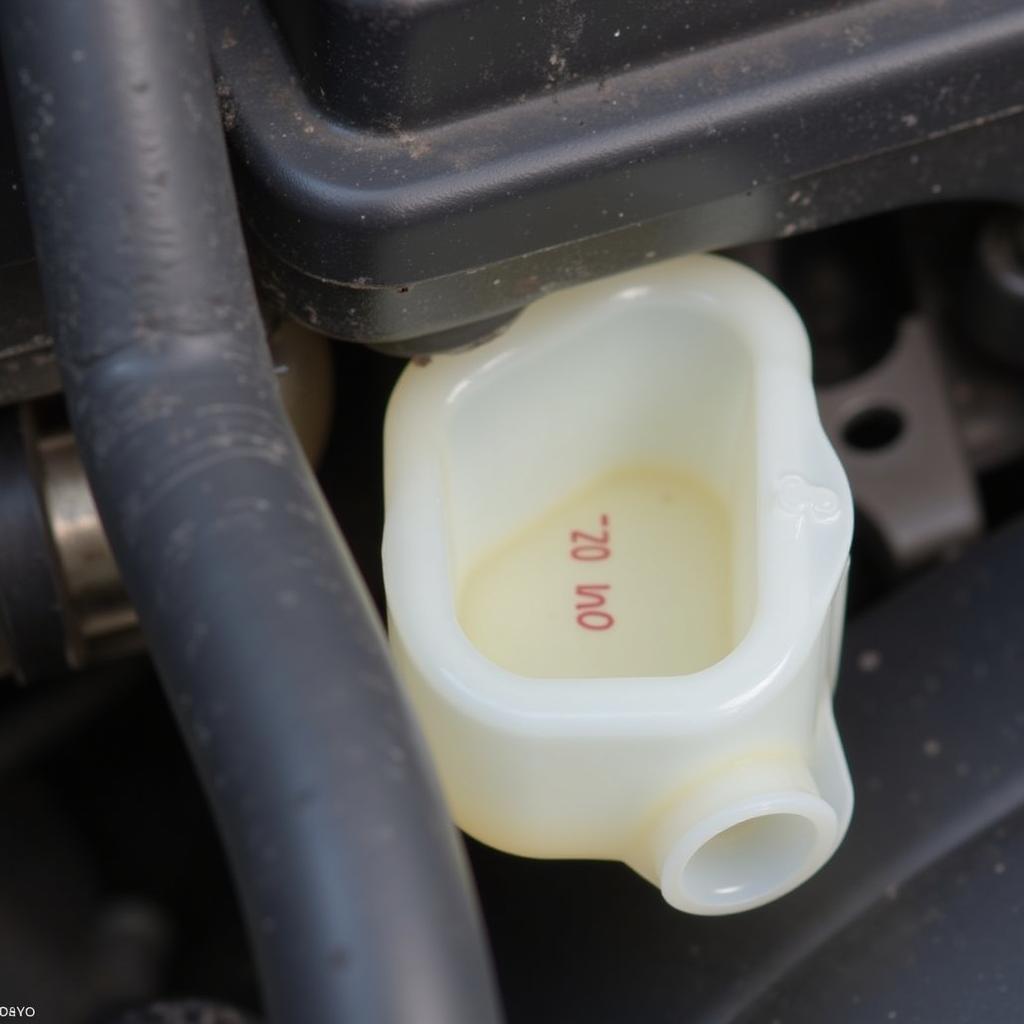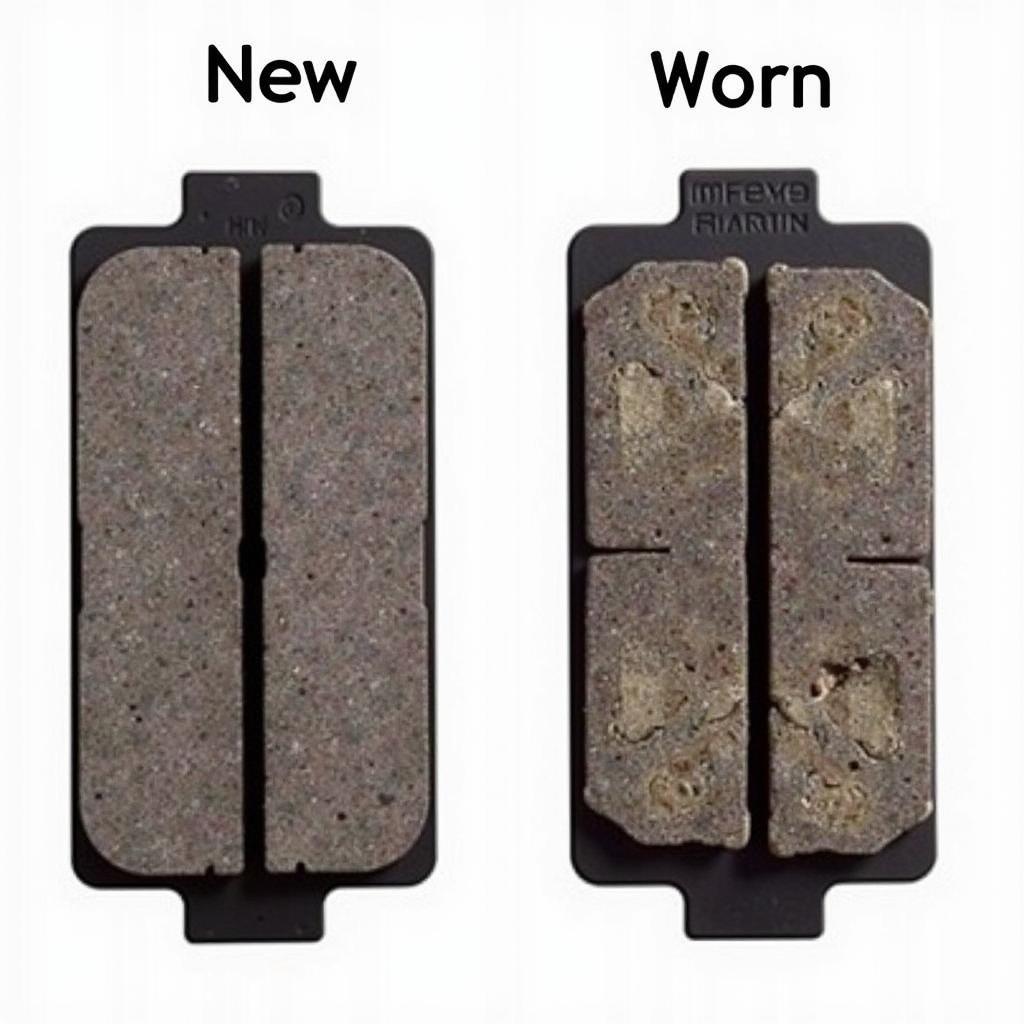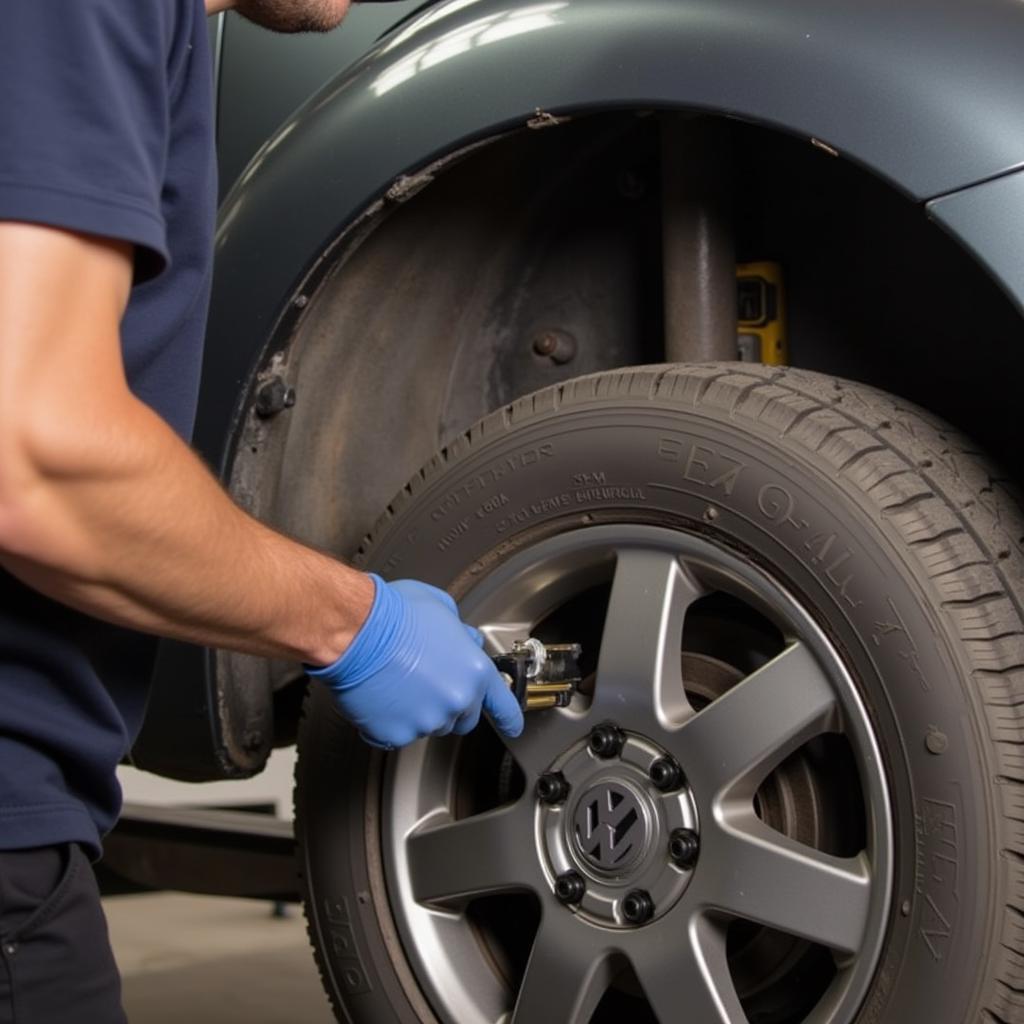The brake warning light on your 1999 VW Beetle flashing? Don’t ignore it! This light is your car’s way of telling you there’s a problem with the braking system. While it could be something as simple as a low brake fluid level, it could also signal a more serious issue. This guide will walk you through the common causes of a 99 VW Beetle brake warning light and how to diagnose and fix them.
Understanding Your Beetle’s Brake Warning System
The brake warning light is connected to several components within your Beetle’s braking system:
- Brake Fluid Level Sensor: This sensor detects when the brake fluid level in the reservoir drops below a safe level.
- Parking Brake Switch: The warning light illuminates when the parking brake is engaged.
- ABS Control Module: For Beetles equipped with Anti-lock Brakes (ABS), the ABS module can trigger the warning light if it detects a fault within the ABS system.
Common Causes of a 99 VW Beetle Brake Warning Light
1. Low Brake Fluid
This is the most common and often the easiest issue to resolve. Over time, brake pads wear down, requiring more brake fluid to fill the space created in the brake lines.
How to Check: Locate the brake fluid reservoir under the hood. The reservoir is typically translucent with a “Min” and “Max” marking. If the fluid level is below the “Min” line, add the appropriate DOT 3 or DOT 4 brake fluid specified in your owner’s manual.
 VW Beetle Low Brake Fluid
VW Beetle Low Brake Fluid
2. Worn Brake Pads
Brake pads naturally wear down with use. If your brake pads are excessively worn, the brake warning light may illuminate.
How to Check: Inspect your brake pads through the spaces between the wheel spokes. You should see a metal backing plate and a friction material. If the friction material is less than 1/4 inch thick, it’s time to replace your brake pads.
 Worn Brake Pads VW Beetle
Worn Brake Pads VW Beetle
3. Brake Fluid Leak
A leak in your brake system will cause the brake fluid level to drop, triggering the warning light.
How to Check: Inspect the ground under your car for signs of fluid leaks. Check the brake lines, hoses, and connections for any wetness or dripping.
Expert Insight from Mike Thompson, ASE Certified Master Technician: “Never drive a car with a suspected brake fluid leak. It’s crucial to address this immediately as it poses a serious safety hazard.”
4. Faulty Brake Light Switch
The brake light switch is located above the brake pedal and activates your brake lights when the pedal is pressed. A malfunctioning switch can also trigger the brake warning light.
How to Check: If your brake lights aren’t working along with the illuminated warning light, the brake light switch is a likely culprit and will need to be replaced.
5. ABS Issues (If Equipped)
For Beetles with ABS, a fault within the ABS system, such as a malfunctioning wheel speed sensor, can illuminate the brake warning light.
How to Check: If you suspect an ABS issue, it’s best to take your car to a qualified mechanic with a diagnostic scanner to retrieve the specific ABS fault codes.
 VW Beetle ABS Sensor
VW Beetle ABS Sensor
What to Do When Your 99 VW Beetle Brake Warning Light Comes On
- Don’t Panic: Pull over safely to the side of the road.
- Check the Parking Brake: Make sure it’s fully disengaged.
- Inspect Brake Fluid Level: Add fluid if it’s low, but don’t drive if you suspect a leak.
- Listen for Unusual Noises: Any grinding or scraping sounds when braking?
- Seek Professional Help: If you can’t identify the issue or it’s beyond your comfort level, get your Beetle to a trusted mechanic.
Conclusion
Ignoring a brake warning light can be dangerous. By understanding the potential causes and following these steps, you can diagnose the issue and keep your 1999 VW Beetle running safely and smoothly. Remember, regular maintenance and timely repairs are crucial for optimal braking performance.
